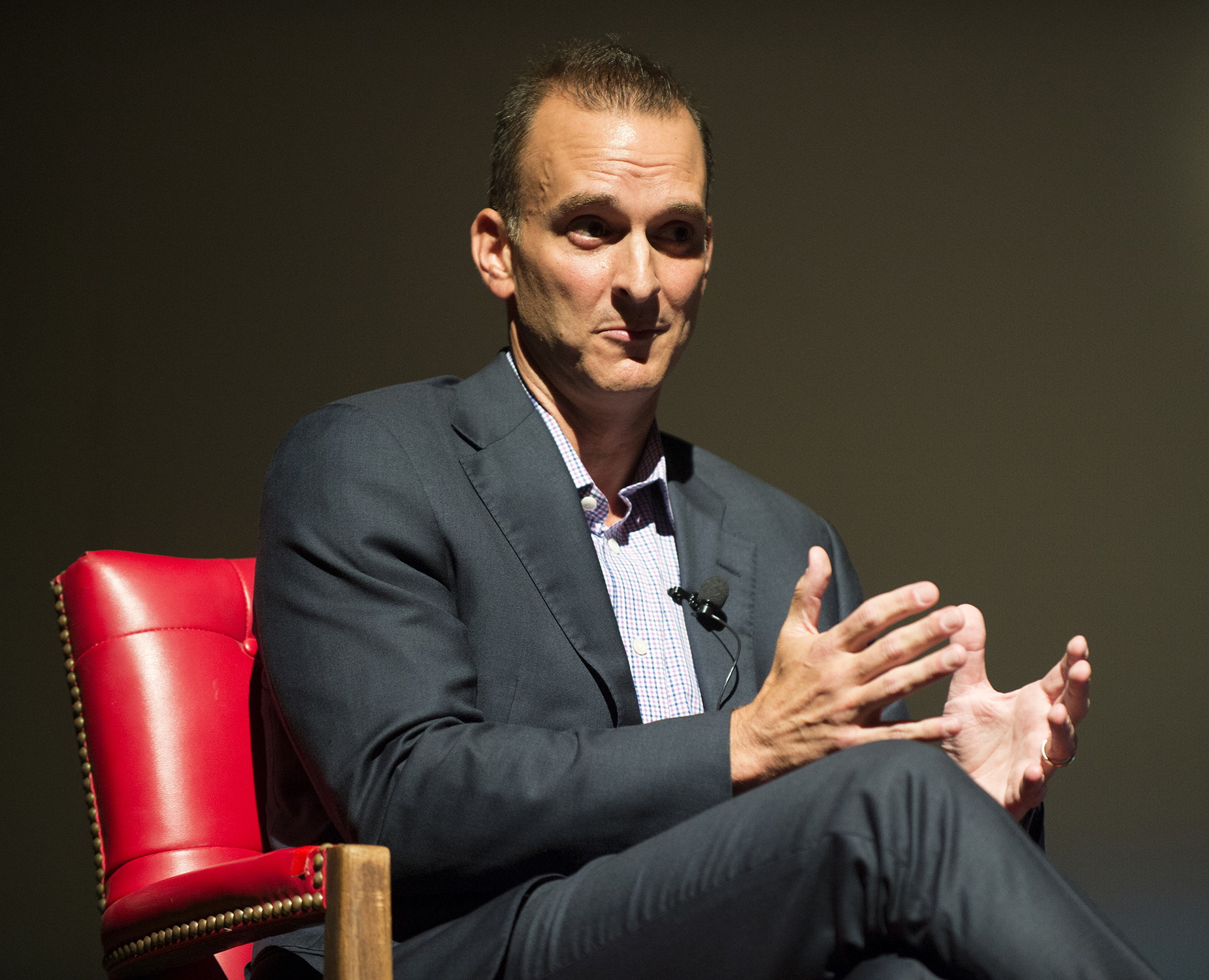U.S. anti-doping CEO speaks at SMU about Lance Armstrong case
Alumnus Travis Tygart, who investigated cyclist Lance Armstrong, spoke at SMU on Tuesday.

By MARK CURRIDEN
Texas Lawbook
Travis Tygart, a former Dallas lawyer who led the investigation and prosecution against cyclist Lance Armstrong, said there is tremendous pressure on athletes and business leaders to do whatever it takes to win, including cheating.
Tygart, the chief executive of the U.S. Anti-Doping Agency, said Tuesday that the Armstrong case is the perfect lesson for those on Wall Street that cheaters end up losing.
 Travis Tygart at SMU Hear his Aug. 19 interview on "Think"  . . |
“It seems like you have to cheat to win today,” he said. “Whether you are an athlete or running a business or practicing law, if you do it by fraud, it is all going to come down at some point.”
Tygart, an alumnus of Southern Methodist University Dedman School of Law, gave a lecture to more than 150 SMU law students and faculty members at the school’s Underwood Law Library.
The U.S. Anti-Doping Agency issued a 202-page report last October detailing its decision to ban Dallas-born Armstrong from competition for life.
Tygart, a former litigation associate at Fulbright & Jaworski, has been praised for his handling of the inquiry despite an organized media and legal campaign opposing it.
Tygart said he received numerous death threats, including one email sent to him from an Armstrong devotee that said: “I hope you have bodyguards and a bulletproof vest.”
Armstrong’s team used social media effectively, describing the inquiry as a witch hunt and efforts to get the cyclist and his teammates to cooperate as constitutional infringements on their Fourth Amendment rights against unlawful searches and seizures and Fifth Amendment rights against self-incrimination, Tygart said.
Tygart said the agency also faced opposition from American business, which had developed a financial interest in having Armstrong and other Americans win the Tour de France through sponsorships and other commercial ventures.
There were even efforts to have Congress defund or dismantle the organization, he said.
“We knew we could win the legal battle, but we knew we had to win the PR battle because that was about people’s minds and public support,” he said.
# # #